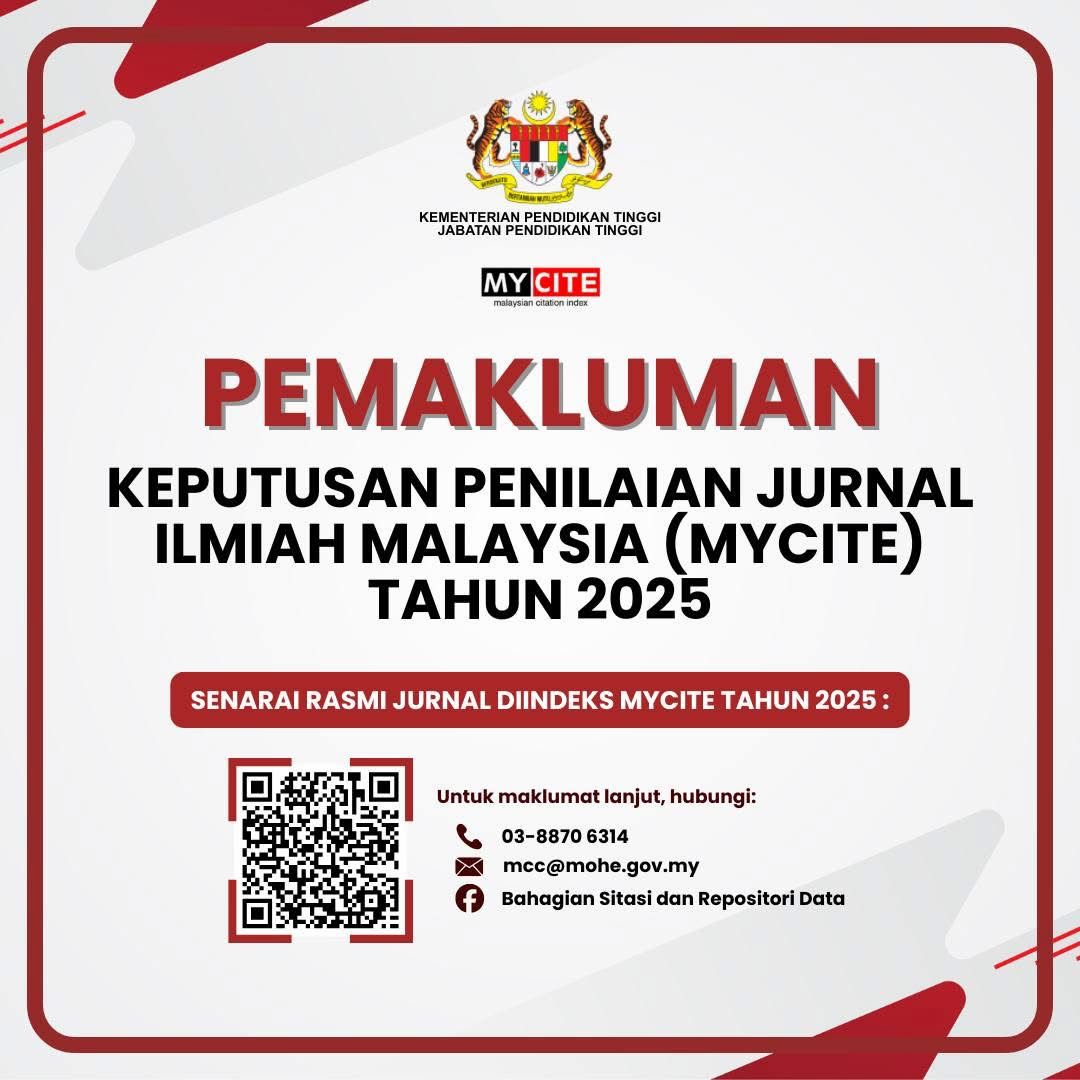Photo Editing in The Age of Social Media: A Critical Literature Review and Future Research Directions
DOI:
https://doi.org/10.24191/idealogy.v10i1.559Keywords:
Photo Editing, Self-Presentation, Behavioral Intention, Theory of Planned Behavior (TPB), Perceived Behavioral Control, Subjective Norm, AttitudeAbstract
In an era increasingly defined by visual communication, photo editing has become a normalized and socially embedded practice among social media users. Platforms such as Instagram, Snapchat, and TikTok promote curated self-presentation through filters and enhancement tools, raising important questions about the psychological and social effects of such behaviors. This paper synthesizes recent empirical research on photo editing behavior, focusing on four dominant themes: body image dissatisfaction, social comparison, intentions for cosmetic enhancement, and the use of editing in tourism and experiential memory. The review also highlights the methodological patterns shaping current research, notably the dominance of cross-sectional survey designs and limited use of qualitative and longitudinal methods. Conceptual gaps, including underexplored demographics, theoretical limitations, and ethical concerns about algorithmic beauty and authenticity, are critically examined. In response, the paper outlines directions for future research, emphasizing the need for more diverse sampling, longitudinal designs, and integrative theoretical models such as the Theory of Planned Behavior and Self-Presentation Theory. The study calls for a more culturally inclusive and ethically engaged approach to understanding how users navigate visual identity in a digitally mediated world.
Keywords: Photo editing, social media, self-presentation, body image, digital identity, social comparison, future research
References
Agrawal, H., & Agrawal, S. (2021). Impact of social media and photo-editing practice on seeking cosmetic dermatology care. Clinical, Cosmetic and Investigational Dermatology, 1377-1385.
Ajzen, I. (1991). The theory of planned behavior. Organizational Behavior and Human Decision Processes, 50(2), 179–211. https://doi.org/10.1016/0749-5978(91)90020-T
Bardsley, J. (2024). Individual Differences in Selfie Taking, Photo Manipulation and Filter Use Amongst Young Adults (Master's thesis, University of South Wales (United Kingdom)).
Beos, N., Kemps, E., & Prichard, I. (2021). Photo manipulation as a predictor of facial dissatisfaction and cosmetic procedure attitudes. Body Image, 39, 194-201.
Bozzola, E., Scarpato, E., Caruso, C., Russo, R., Aversa, T., & Agostiniani, R. (2024). Photo editing and the risk of anorexia nervosa among children and adolescents. Italian Journal of Pediatrics, 50(1), 229.
Chae, J. (2017). Virtual makeover: Selfie-taking and social media use increase selfie-editing frequency through social comparison. Computers in Human Behavior, 66, 370-376.
Chen, J., Ishii, M., Bater, K. L., Darrach, H., Liao, D., Huynh, P. P., ... & Ishii, L. E. (2019). Association between the use of social media and photograph editing applications, self-esteem, and cosmetic surgery acceptance. JAMA facial plastic surgery, 21(5), 361-367.
Cheon, J., Chae, L. D., & Lee, J. Y. (2024). The Effects of Body Image and SNS Body Image on SNS Photo-Editing Tendency. Journal of Technology in Behavioral Science, 1-11.
Bij de Vaate, A. J. N, Veldhuis, J., Alleva, J. M., Konijn, E. A., & van Hugten, C. H. (2018). Show your best self (ie): An exploratory study on selfie-related motivations and behavior in emerging adulthood. Telematics and Informatics, 35(5), 1392-1407.
Engin, D., Bükün, M. F., Kundo, R., Tekin, D., & Çetin, M. (2023). Role of Self-Monitoring and Social Appearance Anxiety in the Relationship Between Photo Editing and Social Withdrawal. Psikiyatride Güncel Yaklaşımlar, 15(Supplement 1), 439-451.
Feerick, E. (2021). Body Dissatisfaction in Young Adults in Relation to Image-Centric Social Media Platforms (Doctoral dissertation, Dublin, National College of Ireland).
Felig, R. N. (2020). Editing the self away: The effects of photo manipulation on perceptions of the self. University of South Florida.
Festinger, L. (1954). A theory of social comparison processes. Human Relations, 7(2), 117–140. https://doi.org/10.1177/001872675400700202
Fredrickson, B. L., & Roberts, T. A. (1997). Objectification theory: Toward understanding women's lived experiences and mental health risks. Psychology of Women Quarterly, 21(2), 173–206. https://doi.org/10.1111/j.1471-6402.1997.tb00108.x
Gioia, F., McLean, S., Griffiths, M. D., & Boursier, V. (2021). Adolescents’ selfie-taking and selfie-editing: A revision of the photo manipulation scale and a moderated mediation model. Current Psychology, 1-17.
Goffman, E. (1959). The presentation of self in everyday life. Garden City, NY: Doubleday.
Guo, R., & Wang, Y. (2024). Finding the best creation strategy: How influencer's photo-editing behavior affects consumer's engagement intention. Journal of Retailing and Consumer Services, 80, 103892.
Wang, Y., & Guo, R. (2024). Travel photography is important to me! The impact of merchants' photo editing behavior on destination clothes rental intention. Journal of Retailing and Consumer Services, 81, 104004.
Holt, J. (2015). The'art of editing': creative practice and pedagogy (Doctoral dissertation, Swinburne).
Jang, J. (2023). Self Presentation using Photo-Editing Apps on Social Media (Doctoral dissertation, 서울대학교 대학원).
Kee, E., & Farid, H. (2011). A perceptual metric for photo retouching. Proceedings of the National Academy of Sciences, 108(50), 19907-19912.
Kim, E., Lee, J. A., Sung, Y., & Choi, S. M. (2016). Predicting selfie-posting behavior on social networking sites: An extension of theory of planned behavior. Computers in Human Behavior, 62, 116-123.
Lee, M., & Lee, H. H. (2019). Can virtual makeovers using photo editing applications moderate negative media influences on SNS users’ body satisfaction?. Canadian Journal of Behavioural Science/Revue canadienne des sciences du comportement, 51(4), 231.
Lee, M., & Lee, H. H. (2021). Social media photo activity, internalization, appearance comparison, and body satisfaction: The moderating role of photo-editing behavior. Computers in Human Behavior, 114, 106579.
Li, N., Meng, F., & Martin, D. (2023). The influence of travel photo editing on tourists’ experiences. Tourism Management, 98, 104762.
Li, N., Meng, F., & Martin, D. (2024). The Distorted Gaze? Travel Photo Editing in the Social Media Era. Journal of Travel Research, 00472875241274562.
Li, N., Meng, F., Zhang, X., & Yang, B. (2025). Do virtual makeovers achieve a better trip? The role of tourists' photo editing and sharing behavior in experience evaluation and memorability. Tourism Management Perspectives, 57, 101359.
Lonergan, A. R., Bussey, K., Mond, J., Brown, O., Griffiths, S., Murray, S. B., & Mitchison, D. (2019). Me, my selfie, and I: The relationship between editing and posting selfies and body dissatisfaction in men and women. Body image, 28, 39-43.
Mäenpää, J., & Seppänen, J. (2010). Imaginary darkroom: Digital photo editing as a strategic ritual. Journalism Practice, 4(4), 454-475.
Maharani, B. M., Hawa, B. C. N., & Devita, P. T. (2020). The Role of Photo Editing in Instagram Towards the Body Image Among Female Teenagers. Asian Journal of Media and Communication, 4(1).
Martel, J., Powell, E., & Murina, A. (2020). The effect of Instagram and photograph editing on seeking dermatologic care. Journal of Cosmetic Dermatology, 19(10), 2732-2735.
McComb, S. E., Gobin, K. C., & Mills, J. S. (2021). The effects of self-disclaimer Instagram captions on young women's mood and body image: The moderating effect of participants’ own photo manipulation practices. Body image, 38, 251-261.
McCrackin, S. D., Mayrand, F., Wei, C., & Ristic, J. (2025). Filtered realities: navigating the social consequences of edited photographs. Current Psychology, 44(8), 6989-7000.
McGovern, O., Collins, R., & Dunne, S. (2022). The associations between photo-editing and body concerns among females: A systematic review. Body Image, 43, 504-517.
McLean, S. A., Paxton, S. J., Wertheim, E. H., & Masters, J. (2015). Photoshopping the selfie: Self photo editing and photo investment are associated with body dissatisfaction in adolescent girls. International Journal of Eating Disorders, 48(8), 1132-1140.
Misra, R., Sataray-Rodriguez, A., Coleman, B. A., Chime-Eze, C., Tolete, C., Haghighat, B., ... & Frasier, K. (2025). The Impact of Photo Editing on Dermatological Perceptions in Skin of Color. Journal of Biosciences and Medicines, 13(2), 435-449.
Mustafa, S., & Akram, M. (2022). Self‐Consciousness, Self‐Objectification, and Social Anxiety as Predictors of Photo Editing Behavior among Emerging Adults. Human Behavior and Emerging Technologies, 2022(1), 6609752.
Othman, S., Lyons, T., Cohn, J. E., Shokri, T., & Bloom, J. D. (2021). The influence of photo editing applications on patients seeking facial plastic surgery services. Aesthetic surgery journal, 41(3), NP101-NP110.
Ozimek, P., Lainas, S., Bierhoff, H. W., & Rohmann, E. (2023). How photo editing in social media shapes self-perceived attractiveness and self-esteem via self-objectification and physical appearance comparisons. BMC psychology, 11(1), 99.
Pham, H. C., Nguyen, L., Vu, T. A., & Tran, P. (2022). Body image esteem and photo manipulation among social media users. Acta Informatica Pragensia.
Vendemia, M. A., & DeAndrea, D. C. (2018). The effects of viewing thin, sexualized selfies on Instagram: Investigating the role of image source and awareness of photo editing practices. Body image, 27, 118-127.
Vendemia, M. A., & DeAndrea, D. C. (2021). The effects of engaging in digital photo modifications and receiving favorable comments on women’s selfies shared on social media. Body Image, 37, 74-83.
Wang, X., & Gu, B. (2022). Ethical dimensions of app designs: A case study of photo-and video-editing apps. Journal of Business and Technical Communication, 36(3), 355-400.
Wick, M. R. (2019). Self-Photo editing and its effect on eating disorder risk in college students (Master's thesis, The Florida State University).
Wick, M. R., & Keel, P. K. (2020). Posting edited photos of the self: Increasing eating disorder risk or harmless behavior?. International Journal of Eating Disorders, 53(6), 864-872.
Wolfe, W. L., & Yakabovits, L. (2024). I’ll see your beautified photo and raise you one: An experimental investigation of the effect of edited social media photo exposure. Psychology of Popular Media, 13(2), 249.
Yan, D., & Li, G. (2025). The relationship between photo retouching addiction and social appearance anxiety for social internet users. Frontiers in Public Health, 13, 1594396.
Downloads
Published
Issue
Section
License
Copyright (c) 2025 Idealogy Journal

This work is licensed under a Creative Commons Attribution-NonCommercial-NoDerivatives 4.0 International License.
UiTM Press (the Publisher) has agreed to publish the undersigned author’s paper in Idealogy Journal. The agreement is contingent upon the fulfilment of a number of requirements listed below.
1. The undersigned author warrants that the paper entitled below is original, that it is not in any way libellous or unlawful in Malaysia, that it does not infringe any copyright or other proprietary right. The undersigned hereby represents and warrants that he/she is the author of the paper, except for material that is clearly identified as to its original source, with permission notices from the copyright owners where required. The undersigned represents that he/she has the power and authority to sign and execute this agreement.
2. The undersigned author warrants that the paper entitled below has not been published elsewhere, and also it will not be submitted anywhere else for publication prior to acceptance/rejection by this Journal.
3. By submitting the paper entitled below, the undersigned author agrees to transfer the rights to publish and distribute the paper in an international e-journal (entitled above) to Publisher.
4. The undersigned author agrees to make a reasonable effort to conform to Publisher's submission guidelines and to liaise with the editor to ensure that the requirements of these guidelines are met to a reasonable degree.
5. The corresponding author signs for and accepts responsibility for releasing this material on behalf of any and all coauthors. This agreement is to be signed by at least one of the authors who has obtained the assent of the co-author(s) where applicable. After submission of this agreement signed by the corresponding author, changes of authorship or in the order of the authors listed will not be accepted.




